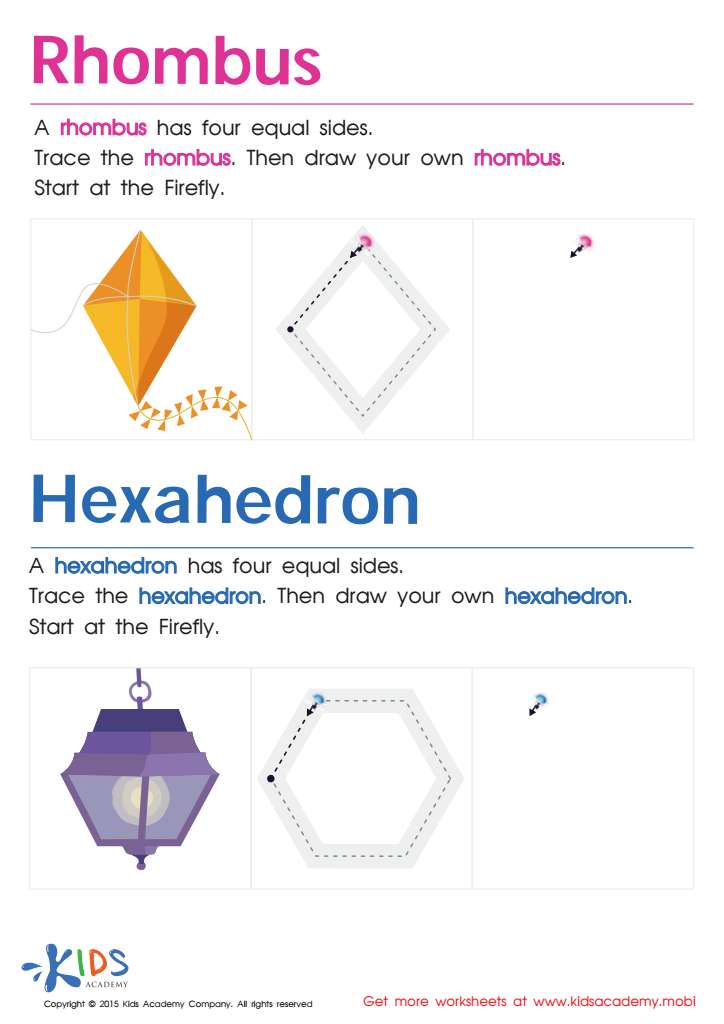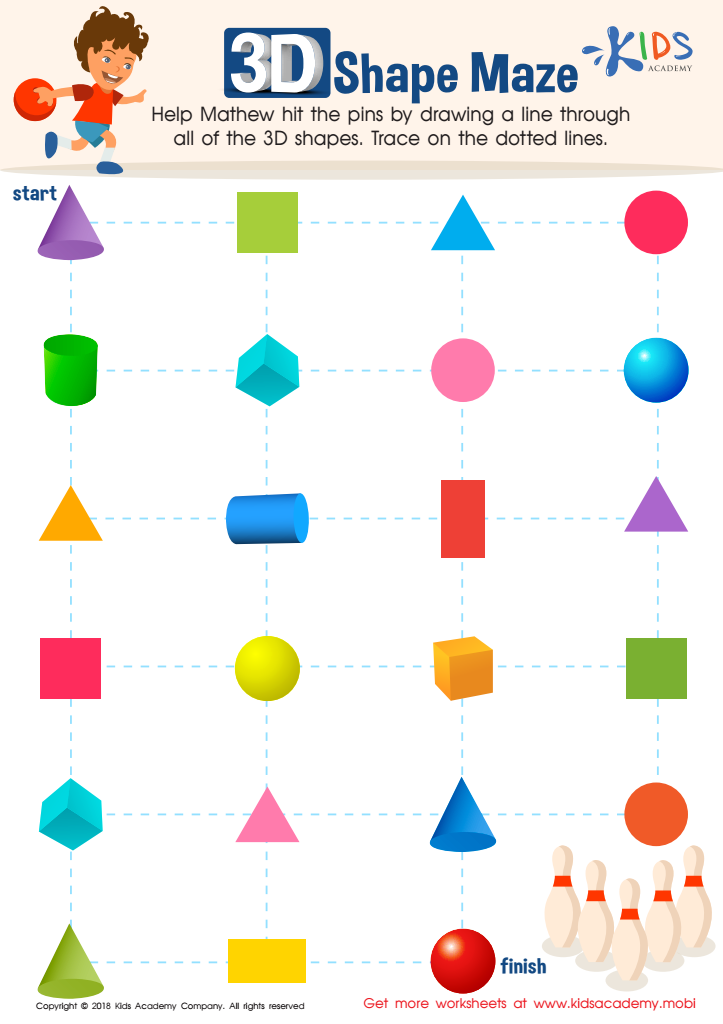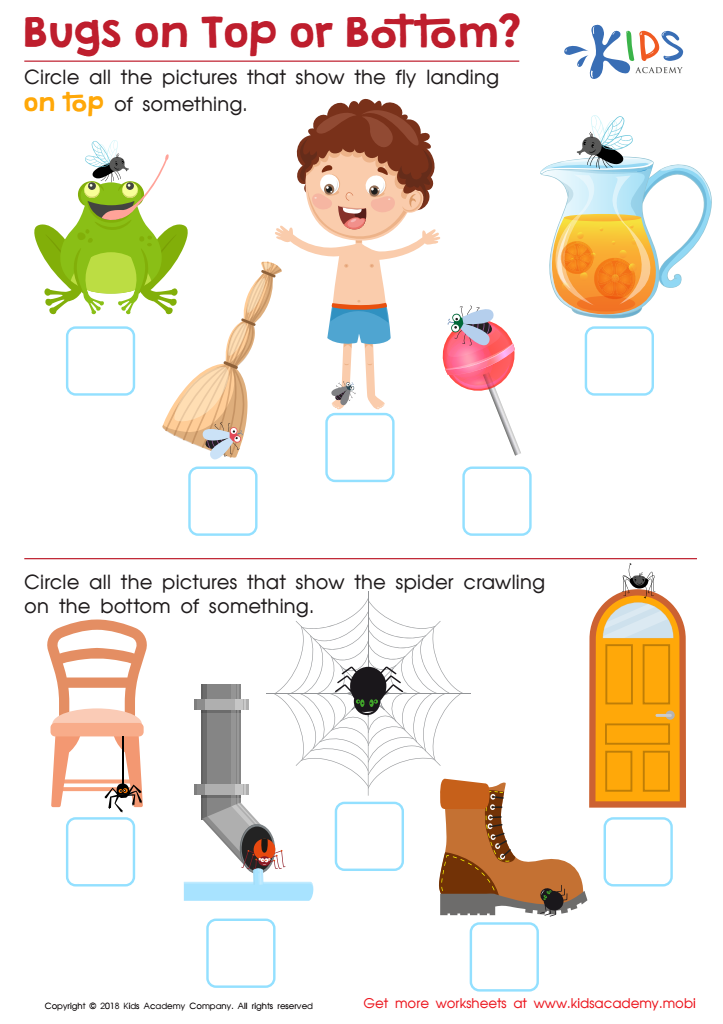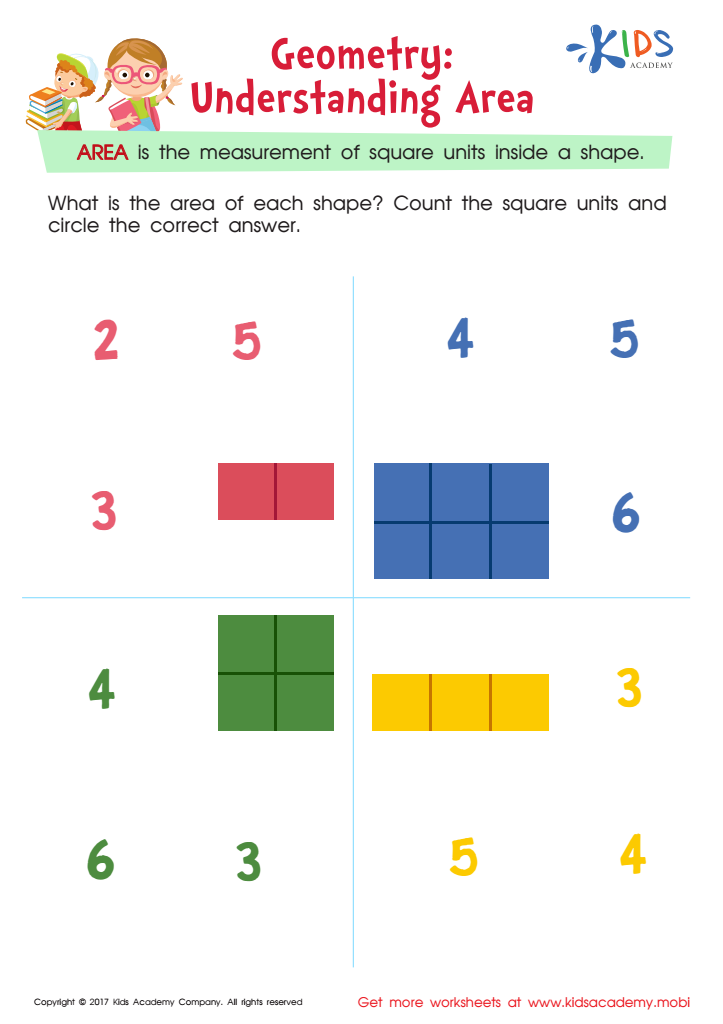Spatial reasoning Geometry Worksheets for Ages 6-9
4 filtered results
-
From - To
Explore our engaging Spatial Reasoning Geometry Worksheets designed for children aged 6-9. These interactive resources help young learners develop critical spatial awareness skills through stimulating activities that involve shapes, spatial relationships, and problem-solving. Our worksheets aim to enhance foundational geometry knowledge and foster logical thinking while keeping students motivated and excited about learning. Perfect for classrooms or at-home practice, each worksheet features colorful illustrations and age-appropriate challenges that encourage hands-on exploration. Nurture your child's understanding of geometry and spatial reasoning in a fun, supportive environment. Start building essential skills today with our free printable worksheets!


Draw a Rhombus And a Hexahedron Printable


Shapes Maze Geometry Worksheet


Bugs on Top or Bottom? Worksheet


Understanding Area Worksheet
Spatial reasoning and geometry play a crucial role in the cognitive development of children aged 6-9. During this formative stage, youngsters are building foundational skills that influence their ability to understand and interact with the world around them. Developing strong spatial reasoning abilities aids in various academic subjects, particularly math and science, helping students visualize shapes, comprehend measurements, and solve complex problems.
Parents and teachers should prioritize spatial reasoning for several reasons. Firstly, it enhances critical thinking and problem-solving skills, essential for both academic achievements and everyday life. Children who engage with spatial tasks are better equipped to tackle challenging concepts in geometry, algebra, and even algebraic thinking as they progress through school.
Moreover, spatial reasoning is linked to success in STEM fields, making it vital in an increasingly technology-driven world. By fostering these skills, parents and teachers empower children to become innovative thinkers, preparing them for future careers in engineering, architecture, and beyond.
Finally, engaging in activities that develop spatial reasoning, such as puzzles, building blocks, or geometry games, can be enjoyable and motivating. This fun approach encourages a love for learning, ensuring that children view educational pursuits as exciting adventures rather than daunting tasks.
 Assign to My Students
Assign to My Students


























